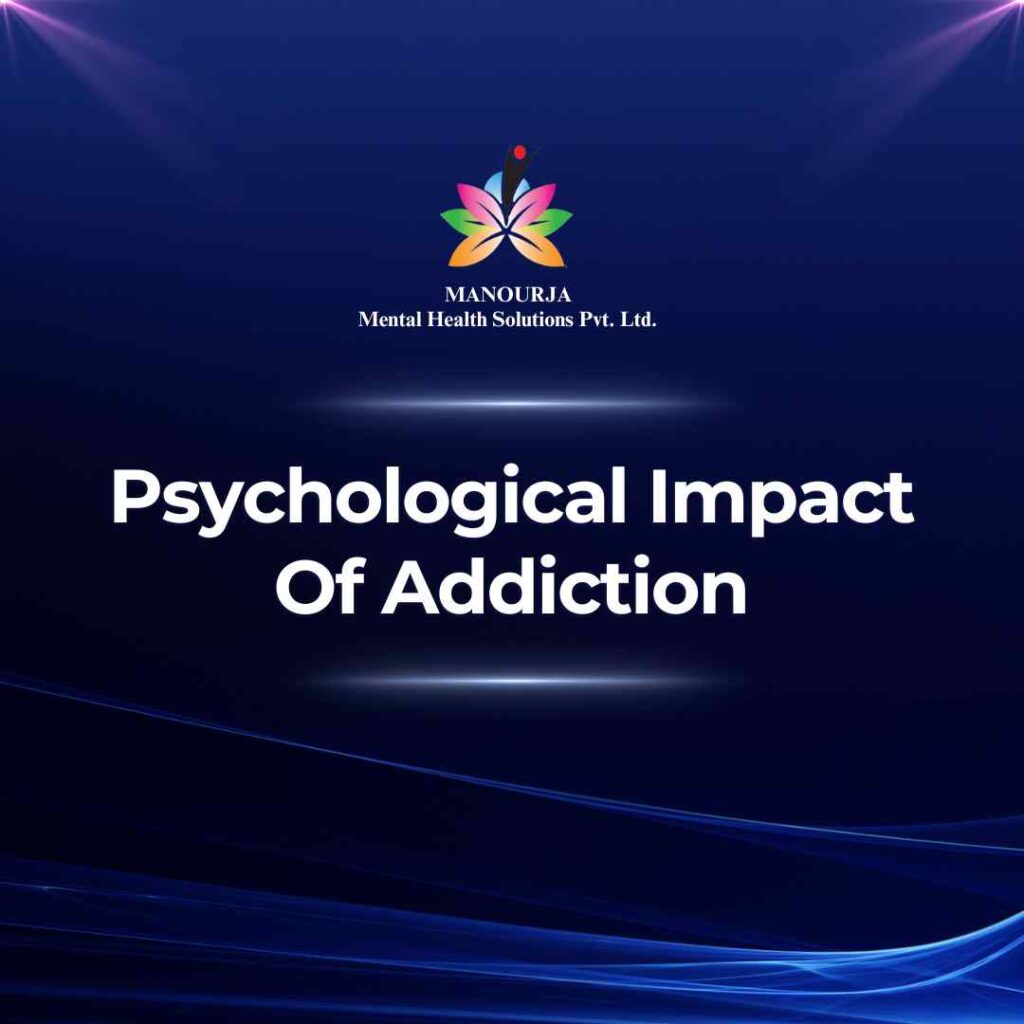Psychological Impact of Addiction

Addiction takes a profound toll on an individual’s mental and emotional well-being, encompassing a range of psychological consequences that extend beyond the surface of substance use or compulsive behaviors. Understanding the psychological impact of addiction is crucial for comprehending the intricate challenges individuals face.
Here are key aspects of the psychological impact of addiction:
- Compromised Mental Health: Addiction is closely linked to the development or exacerbation of mental health disorders such as anxiety, depression, and mood disorders.
- Reduced Cognitive Function: Prolonged substance use can impair cognitive functions such as memory, attention, and decision-making, leading to difficulties in daily life.
- Mood Swings and Instability: Addiction can result in heightened emotional volatility, with individuals experiencing intense mood swings and difficulty regulating emotions.
- Impaired Stress Coping Mechanisms: Individuals may rely on substances or addictive behaviors as maladaptive coping mechanisms, hindering the development of healthier stress management skills.
- Behavioral Changes: Addiction can contribute to changes in personality, leading to increased impulsivity, irritability, or shifts in social behavior.
- Intense Desire for Substance or Behavior: The constant craving for the addictive substance or behavior becomes a focal point, often leading to obsessive thoughts and compulsive actions.
- Social Isolation and Withdrawal: Individuals may withdraw from social connections, leading to isolation, strained relationships, and a diminished support system.
- Decreased Motivation: Addiction can dampen an individual’s motivation, affecting their ability to pursue personal and professional goals.
- Guilt and Shame: Individuals often experience overwhelming feelings of guilt and shame, contributing to a negative self-image and reinforcing the cycle of addiction.
- Poor Decision-Making: Substance use can impair an individual’s ability to make sound judgments, leading to risky behaviors and detrimental choices.
- Resistance to Acknowledgment: Many individuals in the grip of addiction exhibit denial, resisting the recognition of the severity of their problem and the need for intervention.
- Repetitive Negative Patterns: Addiction often traps individuals in cyclical patterns of behavior, fostering a sense of hopelessness and despair.
- Strained Interpersonal Relationships: Addiction can strain relationships with family, friends, and colleagues, leading to conflicts and breakdowns in communication.
- Loss of Enjoyment: The ability to experience pleasure diminishes, and activities once enjoyed lose their appeal, contributing to a sense of emptiness.
- Dual Diagnosis: Addiction frequently coexists with other psychological disorders, complicating treatment and requiring a comprehensive approach.
Understanding the psychological impact of addiction underscores the necessity of holistic and personalized interventions that address both the addictive behavior and the underlying mental health challenges. Effective treatment involves restoring psychological well-being and empowering individuals to cultivate healthier coping mechanisms
At MANOURJA, we believe in the transformative power of counseling. Our experienced therapists offer a safe and supportive space where you can explore your thoughts, emotions, and challenges. Through personalized counselling sessions, we’ll work together to develop coping strategies, build resilience, and achieve lasting positive change. Discover the path to a healthier, happier you with MANOURJA counselling services.
MANOURJA Rehabilitation Services
At MANOURJA, we’re dedicated to helping you in rebuild your life, after difficult times. Our rehabilitation services focus on understanding what you need to move forward, whether you’re recovering from addiction, trauma, or any psychological – social challenges. We create personalized plans, that are all about helping you, regain your strength and find hope again. With a caring team by your side, you’ll have the support to make real progress and take steps toward a brighter, healthier future
